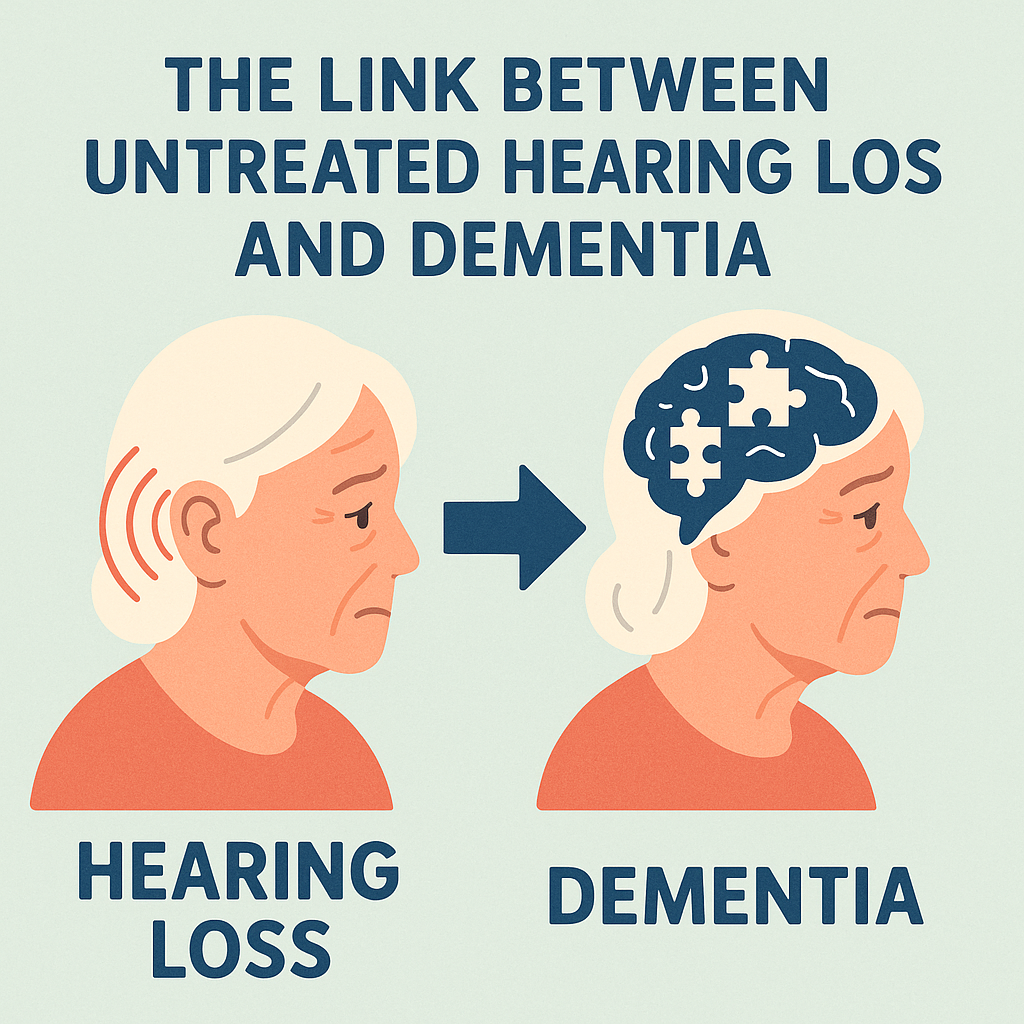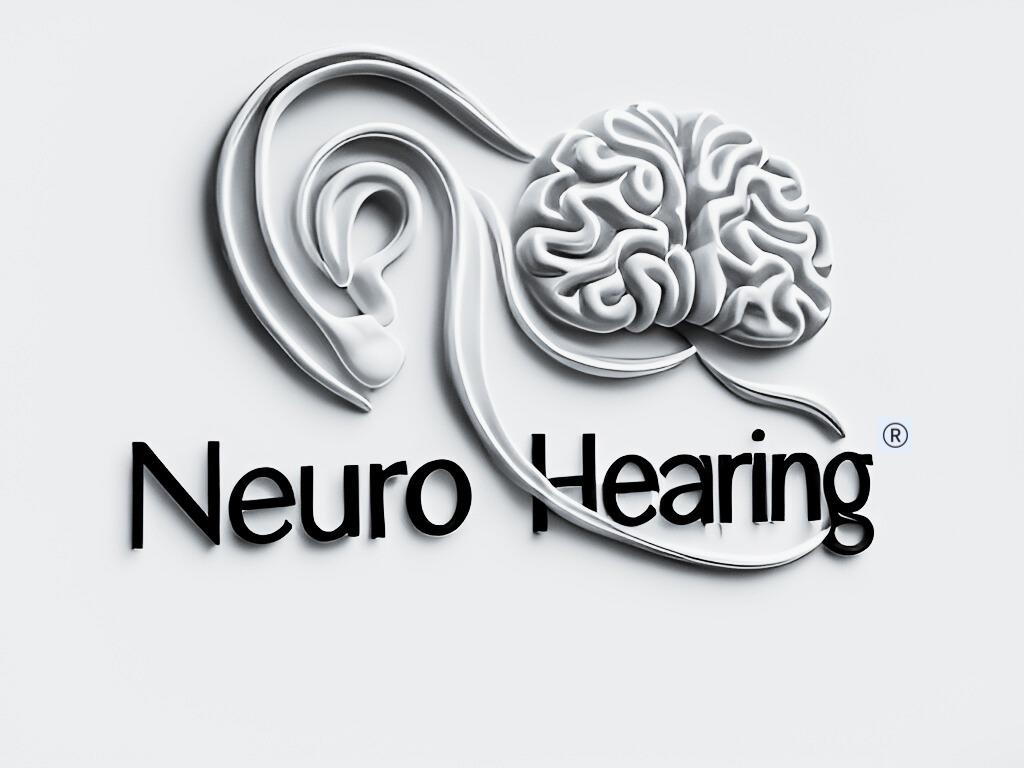The Hidden Link Between Untreated Hearing Loss and Dementia
Why protecting your hearing is also protecting your brain.
For many people, hearing loss feels like a normal part of getting older—something to be tolerated, not treated. But recent research reveals a far more serious consequence of ignoring hearing loss: an increased risk of dementia and cognitive decline.
This connection isn’t just speculation—it’s backed by multiple scientific studies and endorsed by neurologists, audiologists, and researchers worldwide.
Let’s explore how hearing and brain health are deeply connected—and why early treatment can make all the difference.
Hearing Loss: More Than Just an Ear Problem
Hearing is a cognitive process. Your ears detect sound, but it’s your brain that makes sense of it—decoding language, identifying tone, filtering background noise, and storing auditory memories.
When hearing begins to decline, the brain is forced to work harder to fill in the gaps. Over time, this extra effort can lead to:
-
Mental fatigue
-
Difficulty concentrating
-
Memory problems
-
Social withdrawal
And, as research shows, these effects are closely associated with cognitive impairment and dementia.
What the Science Says
1. Johns Hopkins Study: Hearing Loss Doubles Dementia Risk
A landmark 2011 study from Johns Hopkins University followed over 600 adults for 12 years. The results were striking:
-
People with mild hearing loss were twice as likely to develop dementia.
-
Those with moderate hearing loss had three times the risk.
-
Severe hearing loss? Five times the risk of developing dementia.
“Hearing loss is independently associated with incident all-cause dementia.”
– Lin et al., Archives of Neurology, 2011
2. Brain Shrinkage in the Auditory Cortex
MRI studies show that older adults with untreated hearing loss experience accelerated shrinkage in areas of the brain responsible for:
-
Speech comprehension
-
Memory
-
Processing sensory information
“Adults with hearing loss have faster rates of brain atrophy.”
– Peelle et al., The Journal of Neuroscience, 2011
Brain shrinkage is not just a symptom—it’s a key marker in the development of Alzheimer’s and other forms of dementia.
3. Hearing Loss Leads to Social Isolation
One of the most subtle, but dangerous, effects of hearing loss is social withdrawal.
When hearing becomes a struggle, people:
-
Avoid phone calls and social events
-
Withdraw from conversations
-
Feel embarrassed or frustrated in public settings
This isolation is strongly correlated with depression and cognitive decline.
According to the Lancet Commission on Dementia Prevention (2020), treating hearing loss is one of the top 12 modifiable risk factors for dementia.
Why Many People Delay Treatment
Despite these risks, hearing loss often goes untreated for 7 to 10 years after symptoms begin.
Why?
-
“It’s not that bad yet.”
-
“Hearing aids are for old people.”
-
“I don’t want to be seen wearing them.”
-
“They’re too expensive.”
The reality is: early intervention is the best prevention.
The Good News: Treatment Can Protect Your Brain
Hearing aids and cognitive-based auditory therapy (like NeuroHearing™) can reduce the risk of dementia by:
-
Keeping the brain active through sound stimulation
-
Reducing cognitive overload
-
Improving memory, attention, and communication
-
Encouraging social engagement
A 2023 study in The Lancet showed that hearing aid use was linked to a 19% lower risk of long-term cognitive decline in people at risk of dementia.
“Restoring auditory input reduces listening effort and enhances brain health.”
– Sarampalis et al., Journal of Cognitive Neuroscience
Introducing NeuroHearing™ at Cleaner Ears
At Cleaner Ears in Ruislip, we don’t just test your ears—we assess how well your brain is processing sound.
Our NeuroHearing™ assessments go beyond traditional hearing tests by evaluating:
-
Speech-in-noise understanding
-
Auditory memory
-
Brain fatigue
-
Processing speed
Then we build a custom brain-based treatment plan to support long-term cognitive and hearing health.
Don’t Wait. Protect Your Brain Now.
If you or a loved one has been ignoring hearing difficulties—especially if you’ve also noticed memory problems or increased mental fatigue—this is your sign to take action.
Your brain needs sound. And it needs it now, not later.
Book Your NeuroHearing™ Assessment Today
📍 Cleaner Ears – 103 Victoria Rd, Ruislip HA4 9BN
📞 Call us: 01895 677776
💬 WhatsApp Paul: 07730 456122
📅 Book Online Now

